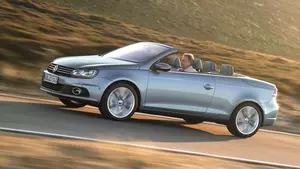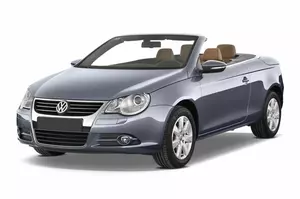
| Vehicle | Curb weight | Difference from world's smallest | Weight to power ratio | 0—60 mph acceleration ratio | Consumption ratio |
|---|---|---|---|---|---|
| 2.0 TSI |
1586 kg / 3497 lbs |
1161 kg (2560 lbs) heavier | 8 kg to 1 hp | 214 kg/s (472 lbs/s) |
211 kg/L (465 lbs/L) |
| 2.0 TDI |
1614 kg / 3559 lbs |
1189 kg (2622 lbs) heavier | 12 kg to 1 hp | 165 kg/s (364 lbs/s) |
305 kg/L (673 lbs/L) |
| 1.4 TSI |
1526 kg / 3365 lbs |
1101 kg (2428 lbs) heavier | 10 kg to 1 hp | 182 kg/s (401 lbs/s) |
224 kg/L (494 lbs/L) |
| Vehicle | 2.0 TSI |
|---|---|
| Curb weight |
1586 kg / 3497 lbs |
| Difference from world's smallest | 1161 kg (1161 lbs) heavier |
| Weight to power ratio | 8 kg to 1 hp |
| 0—60 mph acceleration ratio | 214 kg/s (472 lbs/s) |
| Consumption ratio |
211 kg/L (465 lbs/L) |
| Vehicle | 2.0 TDI |
| Curb weight |
1614 kg / 3559 lbs |
| Difference from world's smallest | 1189 kg (1189 lbs) heavier |
| Weight to power ratio | 12 kg to 1 hp |
| 0—60 mph acceleration ratio | 165 kg/s (364 lbs/s) |
| Consumption ratio |
305 kg/L (673 lbs/L) |
| Vehicle | 1.4 TSI |
| Curb weight |
1526 kg / 3365 lbs |
| Difference from world's smallest | 1101 kg (1101 lbs) heavier |
| Weight to power ratio | 10 kg to 1 hp |
| 0—60 mph acceleration ratio | 182 kg/s (401 lbs/s) |
| Consumption ratio |
224 kg/L (494 lbs/L) |

| Vehicle | Curb weight | Difference from world's smallest | Weight to power ratio | 0—60 mph acceleration ratio | Consumption ratio |
|---|---|---|---|---|---|
| 2.0 i 16V TFSI |
1539 kg / 3393 lbs |
1114 kg (2456 lbs) heavier | 8 kg to 1 hp | 205 kg/s (452 lbs/s) |
188 kg/L (415 lbs/L) |
| 2.0 i 16V FSI |
1481 kg / 3266 lbs |
1056 kg (2329 lbs) heavier | 10 kg to 1 hp | 159 kg/s (351 lbs/s) |
181 kg/L (399 lbs/L) |
| 2.0 TDI |
1548 kg / 3413 lbs |
1123 kg (2476 lbs) heavier | 11 kg to 1 hp | 158 kg/s (348 lbs/s) |
258 kg/L (569 lbs/L) |
| 3.2 V6 |
1539 kg / 3393 lbs |
1114 kg (2456 lbs) heavier | 6 kg to 1 hp | 223 kg/s (492 lbs/s) |
167 kg/L (368 lbs/L) |
| Vehicle | 2.0 i 16V TFSI |
|---|---|
| Curb weight |
1539 kg / 3393 lbs |
| Difference from world's smallest | 1114 kg (1114 lbs) heavier |
| Weight to power ratio | 8 kg to 1 hp |
| 0—60 mph acceleration ratio | 205 kg/s (452 lbs/s) |
| Consumption ratio |
188 kg/L (415 lbs/L) |
| Vehicle | 2.0 i 16V FSI |
| Curb weight |
1481 kg / 3266 lbs |
| Difference from world's smallest | 1056 kg (1056 lbs) heavier |
| Weight to power ratio | 10 kg to 1 hp |
| 0—60 mph acceleration ratio | 159 kg/s (351 lbs/s) |
| Consumption ratio |
181 kg/L (399 lbs/L) |
| Vehicle | 2.0 TDI |
| Curb weight |
1548 kg / 3413 lbs |
| Difference from world's smallest | 1123 kg (1123 lbs) heavier |
| Weight to power ratio | 11 kg to 1 hp |
| 0—60 mph acceleration ratio | 158 kg/s (348 lbs/s) |
| Consumption ratio |
258 kg/L (569 lbs/L) |
| Vehicle | 3.2 V6 |
| Curb weight |
1539 kg / 3393 lbs |
| Difference from world's smallest | 1114 kg (1114 lbs) heavier |
| Weight to power ratio | 6 kg to 1 hp |
| 0—60 mph acceleration ratio | 223 kg/s (492 lbs/s) |
| Consumption ratio |
167 kg/L (368 lbs/L) |